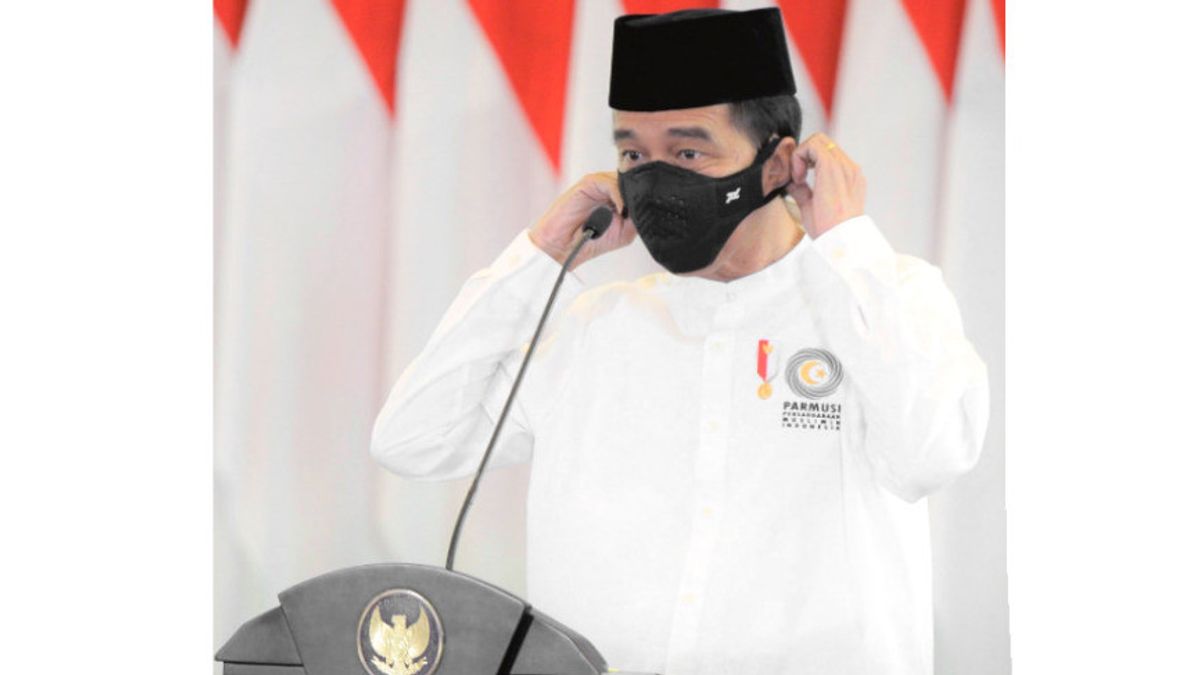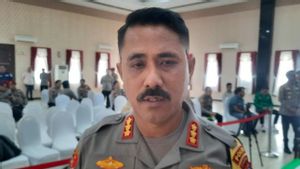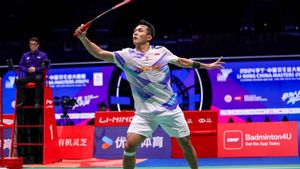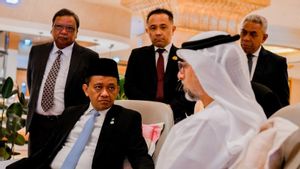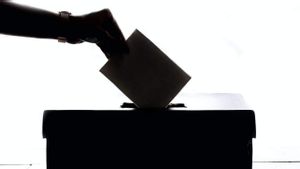JAKARTA - On Monday, January 25 at the Merdeka Palace, Jakarta President Joko Widodo (Jokowi) officially launched the National Movement for Cash Waqf (GNWU) as well as the Sharia Economic Brand. This step is claimed to be a breakthrough to reduce social inequality as well as a strategic effort in equitable development throughout Indonesia.
"One of the breakthrough steps that we need to think about is the development of Islamic financial institutions that are managed based on the waqf system," he said as quoted from the Cabinet Secretariat (Setkab) website.
The Head of State also emphasized that as a country with the largest Muslim population in the world, it is time for Indonesia to provide examples of waqf management practices that are transparent, professional, credible, trustworthy, and have a productive impact on the welfare and economic empowerment of Muslims.
"The launch of the National Money Waqf Movement today is an important part of not only increasing awareness, literacy, and public education on the economy and sharia finance but as an effort to strengthen a sense of care and social solidarity to overcome poverty and social inequality in our country," he said. Head of state.
President Jokowi also stated that the potential for waqf in Indonesia reached IDR 2,000 trillion per year with the potential for cash waqf of IDR188 trillion.
On the same occasion, Minister of Finance Sri Mulyani said that until December 20, 2020, a total of Rp328 billion of cash waqf had been collected. Meanwhile, the project based waqf reached IDR597 billion.
In addition, last year the Indonesian Waqf Board (BWI) and Nazhirs (managers) mobilized cash waqf and invested it in Cash Waqf Linked Sukuk (CWLS). For your information, CWLS is a new instrument issued by the Ministry of Finance where the returns from this investment instrument are used to finance various social programs.
"Currently, more than Rp. 54 billion has been collected in the form of CWLS," he added.
This breakthrough made by the government has received a flurry of celebrities in the country. For example, senior economist Rizal Ramli thinks that the government is using people's funds for the sake of building infrastructure.
Meanwhile, the deputy chairman of the MPR, Hidayat Nur Wahid, believes that what the government is doing about waqf is contradictory. According to him, on the one hand, the government wants to raise funds from the people, but corruption in government continues to occur.
The most important mandateA Capital Market Observer and Member of the Investment Committee of the Hajj Financial Management Agency (BPKH), Student Rizali, said that the giving and use of waqf should be something that can last or be tangible, such as land.
"So if the waqf fund is for development, it must be clear what to build. Maybe if it's infrastructure, even though it's uncomfortable for many people to hear, ”he told VOI, Thursday night, January 28.
Rizal added that the institution receiving the waqf must ensure that the assets or funds being donated are in accordance with the designation of the party giving it. This is because the waqf giver is the side that determines the benefits of the assets and funds that are issued.
"The most important thing is how the sharia principles are and the institution receiving this waqf must be truly trustworthy in carrying out its duties. If it meets the elements of sharia, then the utilization can be carried out, "he said.
Rizal also did not deny the possibility that the waqf assets could be in line with a commercial scheme that could potentially bring economic benefits.
"Another example of land waqf which is later built a mosque. Some time later the land entered the city center, like the Aceh waqf in Mecca. Through the use of technology, a 20-story building can be built. From this building, maybe 2-3 levels are for mosques and Islamic activities, the rest is for other purposes that are halal and of a commercial nature, "he added.
Furthermore, he compared this waqf scheme with a similar endowment fund system. In practice, endowment funds raise funds and then have a tendency to invest the funds received so that their value will survive and grow.
"If the waqf returns again, what is the mandate of the donor of the waqf when outsourcing the asset, this must be carried out. Don't because imitating what is good in the modern system violates the mandate and sharia, "he said.
Sharia certaintyDirector General of Islamic Community Guidance at the Ministry of Religion, Kamaruddin Amin, underlined that the mechanism for collecting and managing cash waqf is regulated in laws and government regulations. In managing the waqf, he ensures that it is only invested in Islamic financial products.
"Broadly speaking, cash waqf management can only be done through investing in Islamic financial products," he said in a written statement, quoted by VOI, Thursday, January 28.
He added that the accumulated waqf money is then managed in various official Islamic financial products such as mudharabah deposits, musyarakah, even sukuk or State Sharia Securities (SBSN).
"It is up to you to invest in which instrument, as long as it is in accordance with the provisions of the Law and Sharia regulations and by taking into account the wishes of the waqf giver," he said.
Kamaruddin reminded that 90 percent of the proceeds from the sharia investment must be used in the community empowerment program. While the other 10 percent can be used by the waqf asset manager.
"We at the ministry in carrying out supervision, collection and management of cash waqf always adhere to the Regulation of the Minister of Religion (PMA) Number 4 of 2009 as a legal basis," he concluded.
The English, Chinese, Japanese, Arabic, and French versions are automatically generated by the AI. So there may still be inaccuracies in translating, please always see Indonesian as our main language. (system supported by DigitalSiber.id)
